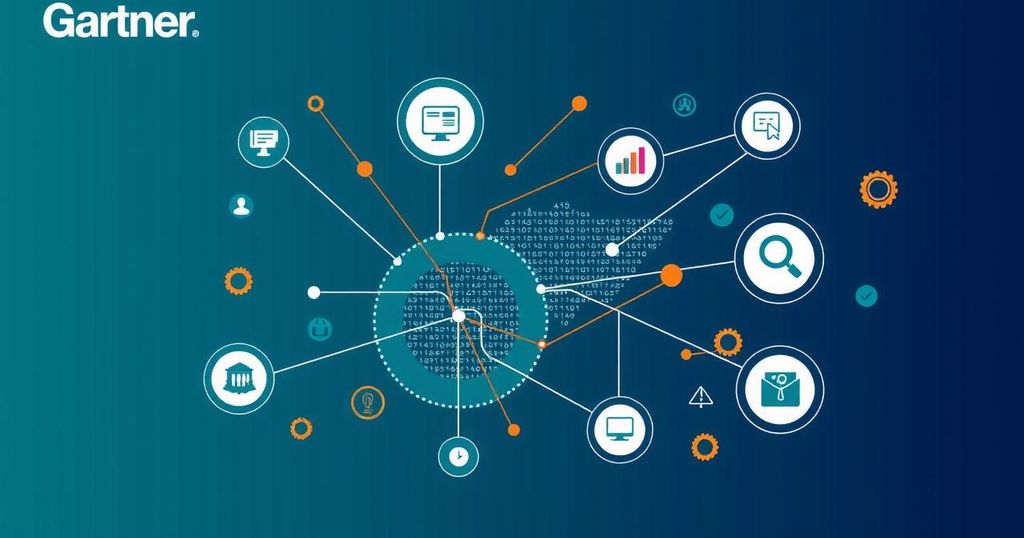Gartner Unveils Pivotal HR Technology Trends for 2024: Embracing AI
Gartner highlights AI in HR, AI-enabled skills management, and HR virtual assistants as the top trends for 2024, aiming to enhance the employee experience while navigating challenges in implementation. Key insights emphasize the necessity for HR leaders to balance technological adoption with organizational culture and readiness.
In an illuminating revelation, Gartner has unveiled the leading trends in HR technology for 2024, with a spotlight on artificial intelligence (AI). As organizations embrace a digital transformation, AI emerges not only as a tool for efficiency but as a transformative force reshaping employee interactions and expectations. The trio of trends identified includes ‘AI in HR’, ‘AI-enabled skills management’, and ‘HR virtual assistants’, all poised to redefine the workplace landscape.
According to the Gartner Hype Cycle for HR Technology, current innovations are critical in crafting a more human-centric work environment but must be approached with caution. “This year’s Hype Cycle reflects limited ‘new’ innovations as the hype around GenAI has meant that organisations aren’t making major investments in other areas,” noted Jeff Freyermuth, Director Analyst at Gartner. In a world awash with technology, HR leaders must navigate between the essential and the exaggerative, ensuring that new systems foster genuine improvements in the workplace.
At the forefront of this trend is the potential of AI in HR. This technology offers predictive insights and intuitive user interfaces, creating a more engaging employee experience. Companies are encouraged to lean into AI for automating routine tasks and developing valuable insights for both employees and management.
In tandem, AI-enabled skills management is evolving through natural language processing and dynamic skill data evaluation, reshaping how organizations identify talent and plan professional development. Helen Poitevin, Distinguished Vice President Analyst at Gartner, highlighted that a strategic approach to these innovations allows HR functions to adapt swiftly during turbulent times, enhancing their competitiveness.
Moreover, Internal Talent Marketplaces (ITMs) surge in importance, serving as intelligent platforms that better connect workers to career opportunities. They offer a transparent view of available skills and potential growth paths, but their uptake is hindered by workplace culture that favors traditional structures over flexibility. Emi Chiba, Senior Principal Analyst at Gartner, remarked, “ITMs provide valuable insight into skills present in the organisation and provide workers with equitable insight into available growth opportunities.”
Conversely, HR Virtual Assistants (HRVAs) are treading a challenging path, transitioning from overhyped expectations to a more sobering reality. Despite shortcomings in usability compared to consumer applications, these virtual aides are crucial for streamlining HR processes and enriching the employee experience. To enhance their effectiveness, HR leaders are urged to unify interfaces across various VA platforms for a smoother user journey.
As the workplace evolves with technological advancements, HR technology plays a pivotal role in fostering a more engaged and productive workforce. The Gartner Hype Cycle serves as a compass guiding HR leaders in discerning between genuinely transformative innovations and mere hype. Understanding the trends helps organizations implement strategies that not only enhance efficiency but also create meaningful connections within their teams.
In summary, Gartner’s insights into HR technology trends for 2024 reveal a landscape rich with opportunities for innovation and adaptation. AI, particularly in the realms of skills management and virtual assistance, is key to enhancing the employee experience. However, as organizations navigate this transformation, a keen awareness of cultural and behavioral shifts is essential for successful implementation. Embracing these technologies offers a pathway to a more agile and competitive workforce.
Original Source: itbrief.com.au




Post Comment